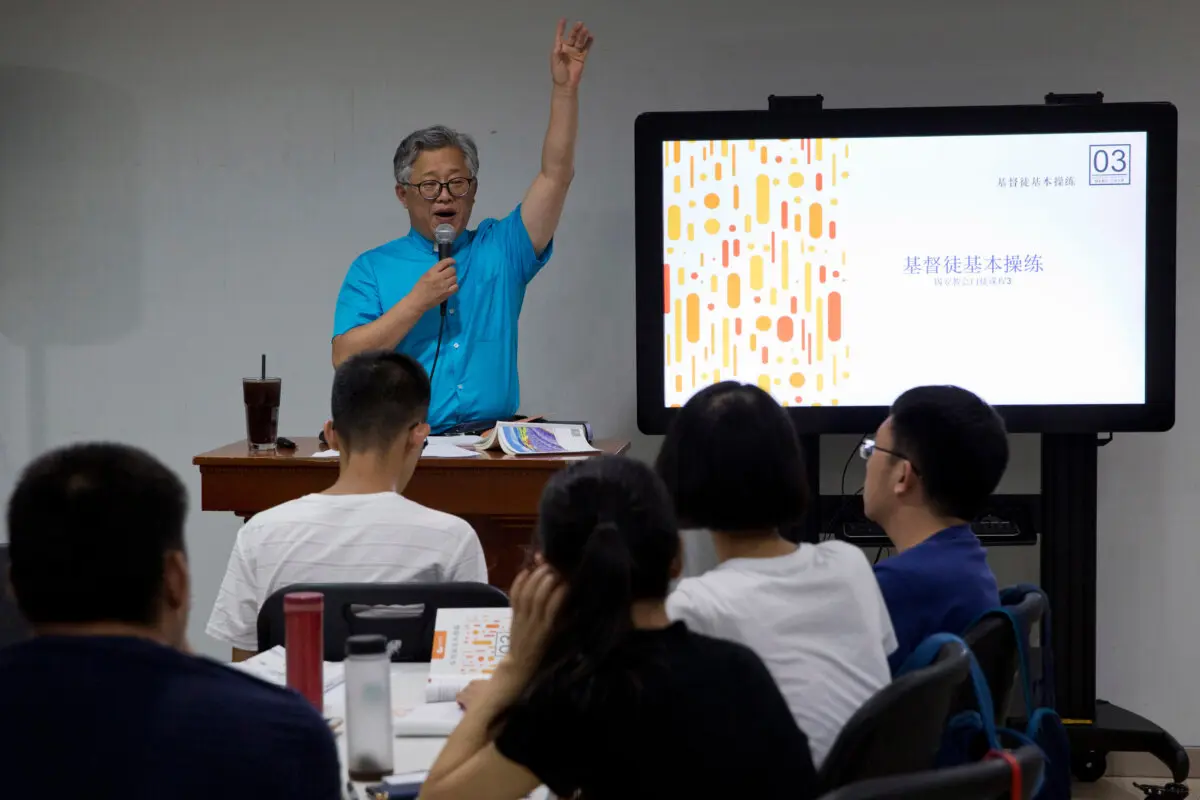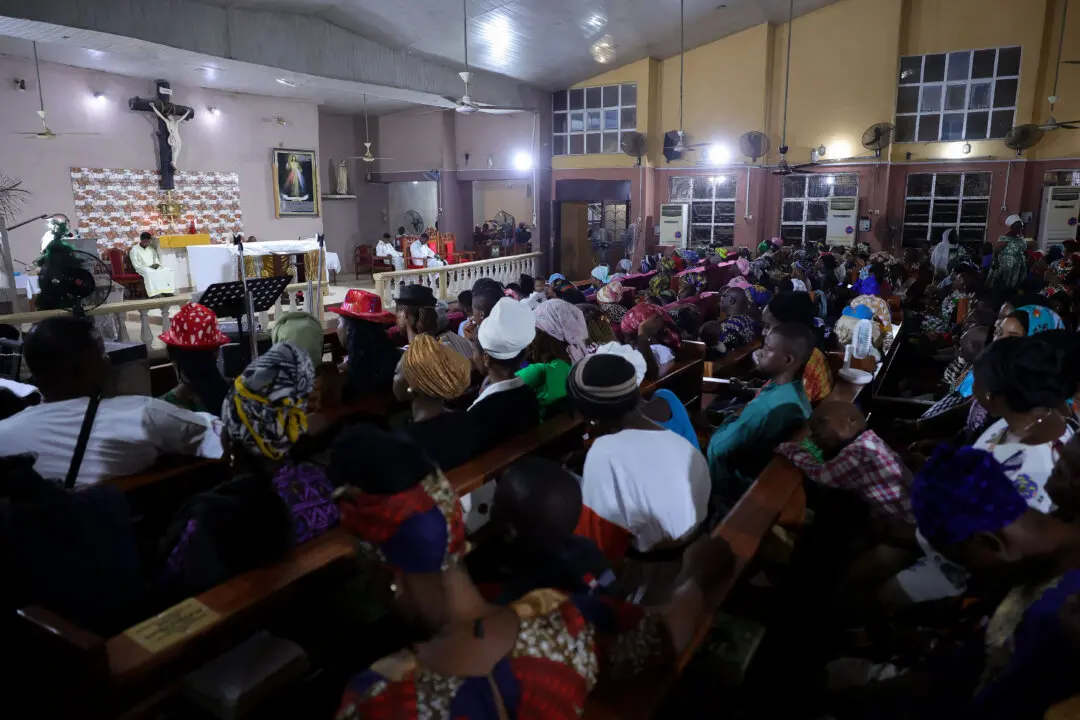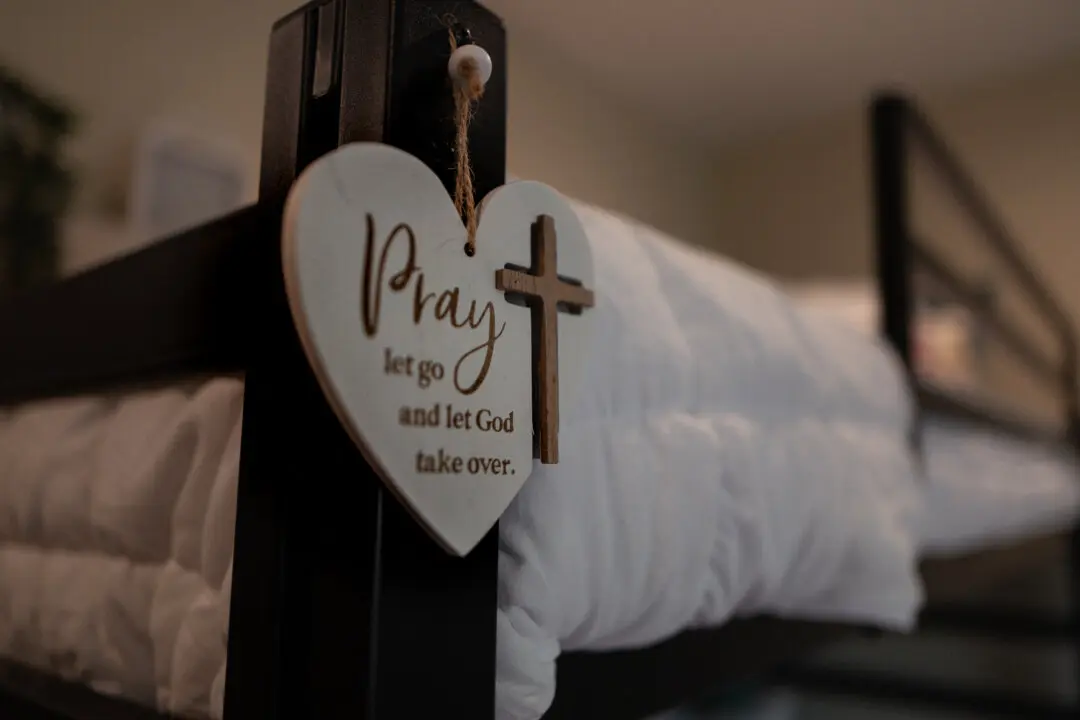Chinese authorities have detained dozens of pastors and members of Zion Church, one of the country’s largest unregistered Christian networks, in what rights groups and observers called the communist regime’s most sweeping crackdown on underground churches in decades.
The arrests, carried out across multiple cities beginning Oct. 10, targeted the leadership of the influential house church network founded by Beijing pastor Jin Mingri, also known as Ezra Jin.
The detentions have drawn criticism from Washington and international religious freedom groups.
In a statement on Sunday, U.S. Secretary of State Marco Rubio condemned what he called a hostile act by the Chinese Communist Party (CCP) against Christians who “reject Party interference in their faith.” He demanded the immediate release of Jin and other church leaders.
Ambassador Sam Brownback, who previously served as U.S. ambassador-at-large for international religious freedom, told The Epoch Times the crackdown is part of a pattern of repression timed for political leverage. He compared it to earlier cycles in which China detained religious leaders before high-level trade or diplomatic negotiations with Washington.
“Hamas takes hostages for use later and so does China,” Brownback said via text message, referring to the Gaza-based Hamas terrorist group, which kidnapped more than 250 people during its surprise attack on Israel in October 2023.
“It’s a very cynical abuse of their own people. An incredible violation of the fundamental human right of religious freedom!”
U.S. Rep. Christopher Smith (R-N.J.), who has long championed religious freedom in China, criticized the Chinese regime’s actions in an email to The Epoch Times.
“[CCP leader] Xi Jinping clearly will not tolerate worship of anyone other than himself. He sees Chinese Christians as a threat to his rule—precisely because of Christianity’s fundamental commitment to a transcendent God in whose Likeness we are all created,” Smith wrote.
Authorities in Beihai, in southern Guangxi province, detained Jin at his home on Friday night. A detention notice shared by supporters said Jin is being held at Beihai City No. 2 Detention Center on suspicion of “illegal use of information networks,” a vague charge that carries a potential sentence of up to seven years.
Jin, 56, graduated from Peking University and entered the ministry after his conversion to Christianity following the 1989 Tiananmen Square massacre. He founded Zion Church in 2007 after leaving the state-sanctioned Three-Self Patriotic Movement. He sought to build a self-governed, Bible-based congregation free of Communist Party oversight.
Zion grew to become one of China’s most visible independent Protestant communities, drawing some 5,000 worshippers to services in Beijing and other areas in nearly 50 cities. That visibility also caught the attention of state authorities. In 2018, police forcibly closed the church’s main sanctuary in Beijing after Jin refused to install government surveillance cameras.
Since then, he has been repeatedly interrogated and barred from international travel. His wife and children, who emigrated to the United States for safety, have not seen him in person for more than seven years.
Family members say Jin’s health problems—including diabetes—make his detention particularly concerning. Lawyers have been denied access to him and other detained clergy, said Jin’s daughter, Grace Jin.

International Christian Concern, a U.S.-based watchdog group, said the current campaign represents “another desperate and futile attempt from President Xi and the CCP to crush and control the Chinese underground church.”
The group’s Southeast Asia director, who cannot be named for security reasons, told The Epoch Times via email the regime continues to use “trumped-up fraud and cult-related accusations” to intimidate unregistered congregations, but added that “the church in China continues to grow despite these devious tactics.”
Hudson Institute President and CEO John P. Walters condemned the crackdown and urged global accountability.
He urged the U.S. government and the international community “to hold the Chinese Communist Party accountable for its numerous ongoing human-rights violations.”
The latest wave of arrests comes amid new regulations issued last month by China’s National Religious Affairs Administration banning unauthorized online preaching, “foreign collusion,” and unsanctioned clergy training. Chinese leader Xi has vowed to “Sinicize” religion by aligning it more closely with communist ideology and ensuring “strict law enforcement” in religious affairs.
While the government says it protects lawful religious freedom, it recognizes only state-approved Protestant, Catholic, Buddhist, Taoist, and Islamic organizations. Independent house churches—which collectively represent tens of millions of believers—operate in a legal gray zone and have faced increasing surveillance, harassment, and closure.
Zion Church spokesperson, Sean Long, said that more than 150 worshippers have been questioned in recent months. Police have also stepped up scrutiny of in-person gatherings and online prayer meetings, accusing participants of violating data and internet laws.
“What just happened is part of a new wave of religious persecution this year,” Long said.
At a 2016 national conference on religion, Xi urged officials to “guide those who are religious to love their country” and to ensure religious practice “serves the overall interests of the Chinese nation.”







